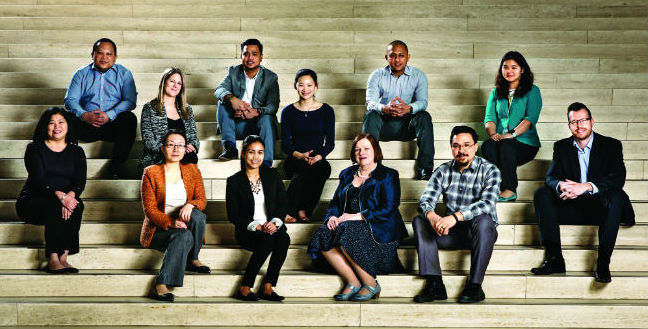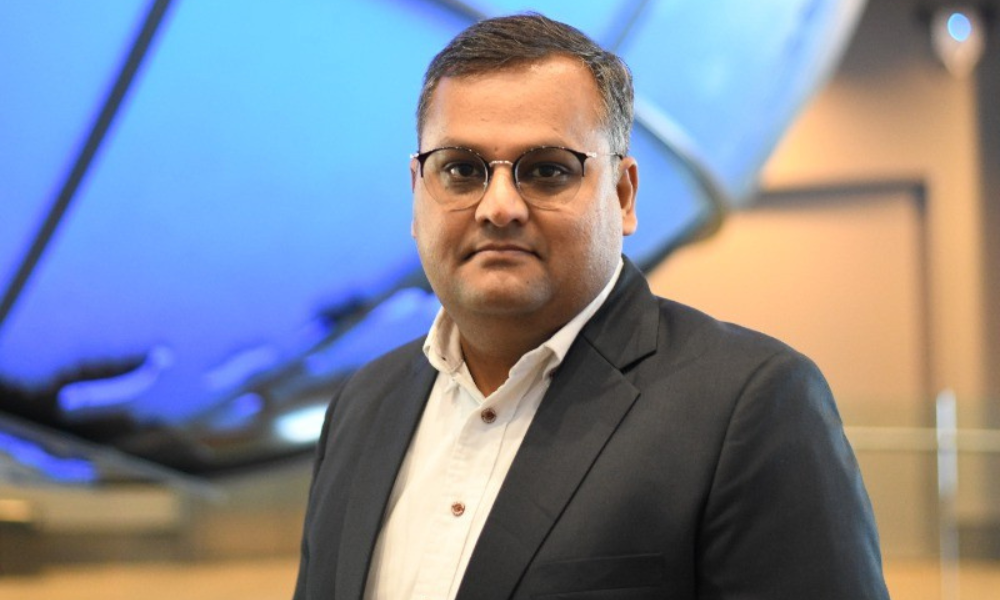Winner: Technology/Innovation Award

The City of Edmonton’s HR team had seen success establishing a strong recruitment presence on social media over the past five years. They’d even put in place an online application that allowed prospects to apply for positions as soon as they saw the job posting ad.
But the 14,000-plus employer was facing a big challenge. Typical job postings attracted a number of unqualified candidates and failed to communicate less tangible benefits, such as leadership style, business strategies, and current initiatives. Moreover, given the union’s specifications for 90 per cent of the job postings with the government employer, a lot of text was required on job descriptions.
“We knew people wanted to know who they would be working for, what the culture was like and to get excited about working here,” says Margaret Blair, director of recruitment. “But they didn’t want to read about it.”
Enter Shahid Wazed, team lead of recruitment sourcing strategies. He’d already helped the city establish 115,000 Facebook followers and 40,000 on LinkedIn on the recruiting channels alone. Now he proposed using podcasts.
“Inbound marketers were using podcasts a lot and I thought, ‘Why not use something like this for recruitment?’” says Wazed. “In reality, 50 per cent of our candidates come through mobile devices. So why not make it easier and just embed an informative, engaging podcast right into the job posting so when top talent lands on a job posting, they get to listen to it right away before reading any text?”
Wazed initially sold the idea to both Jeff MacPherson, HR branch manager, and Blair, as well as a key pivot person in the process, Nigel Brown, team lead for the executive recruitment team. As the agency within the City of Edmonton dedicated to recruitment at the executive level (often facing unique or hard-to-fill vacancies), their portfolio was the perfect one to launch with, says Blair.
“Nigel saw the value in the strategy and was key to getting buy-in from our own staff, and then directing them to us for the technical work.”
With Brown’s nod, Wazed set about developing pilot podcasts. Since he was coming at it from scratch, he researched a number of options and settled on Garageband software to record the podcasts, and Libsyn, an online podcast hosting service, he says.
Clear communication and processes helped win over management, says Blair. Specifically, Wazed and his direct report, Jessica Avila, recruitment and content marketing consultant, developed a one-page marketing document and a visual podcast process overview diagram to help hiring managers understand the process and timelines.
These days, Wazed and Avila develop and share a podcast script and interview questions with the hiring manager, and conduct a quick coaching call. The final podcast is reviewed with them, and the two keep hiring managers up to date on the number of downloads after the podcast is live.
Any instances where hiring managers might have frozen in front of a camera were eliminated with the microphone-only approach, says Blair.
The approach also allowed for editing, says Wazed. “We are able to do edits, and ask them to record smaller segments, too. The first recordings would take one hour to an hour-and-a-half. Now, they take 15 or 20 minutes at the most.”
“The candidate response has been terrific,” says Blair. “The podcasts are downloaded anywhere from 150 to 1,000 times each.”
This means candidates are spending the time to listen to the short five-minute podcasts before deciding whether or not to put in their application, she says.
“Not only are these inexpensive to produce, on the innovation side of things, this is the first time from a company perspective that we’re enabling transparency between candidates and hiring managers.”
Typically, job postings limit accessibility, says Blair. “But it’s important for top candidates to know what their manager’s leadership style is and to see if they connect. We need them to be responsible for way more than XYZ, and the podcasts take job descriptions to the next level.”
Ultimately, the podcasts help make the interaction a personalized and more informative one, she says.
And the positive reception from hiring managers is a testament to its success, says Blair. Deputy city managers and city councillors have all recorded podcasts to help recruit top talent.
While it’s too early for the team to track the return on investment, they are tracking the number of times candidates refer to the podcast on their cover letter or during pre-screening interviews.
“We’ve had candidates remark on how an upcoming project really excites them,” says Blair.
“We believe this will correlate to higher qualified candidates, too. Already we are attracting people who we would not otherwise attract.”
In addition, during pre-screening interviews, recruiters have noticed that candidates seem better informed about the role they are applying for, the expectations and work area, says Blair.
“Candidates ask more penetrating questions about the role since the podcast opens up dialogue.”
While the team waits for quantitative ROI measurements, Wazed has already dreamed up his next new online recruiting development. The city’s job posting content will contain more information around the types of on-the-job challenges that await — and might excite — candidates.
“About 70 to 80 per cent of Google’s career site job postings are focused in that way,” he says.
Lesley Young is a freelance writer based in Edmonton.



